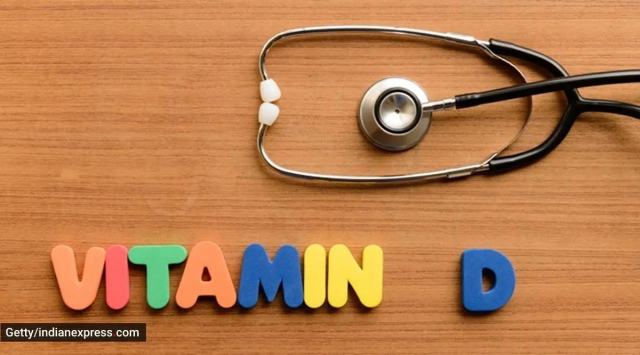📣 For more lifestyle news, click here to join our WhatsApp Channel and also follow us on Instagram
Study proves how Vitamin D deficiency causes dementia in older adults
'It’s interesting that improvement in cognition was noted with correction of moderate deficiency. Vitamin D plays an important role in neural development, neuroplasticity and brain functioning,' says Dr Sucheta Mudgerikar, senior consultant neurologist at Apollo Hospitals, Gandhinagar
 Vitamin D plays an important role in neural development, neuroplasticity and brain functioning. (Photo: Getty Images/Thinkstock)
Vitamin D plays an important role in neural development, neuroplasticity and brain functioning. (Photo: Getty Images/Thinkstock) Vitamin D deficiency in older adults, if addressed at the right time and with supplementation built into their health care regimes, can prevent them from developing Alzheimer’s Dementia (AD).
A Germany-based study of 1,334 elderly people has indicated how Vitamin D deficiency increased their risk of disease progression and validates earlier population-based longitudinal studies. With a mean age of the participants at 84 years, who were followed up over approximately seven years, 250 participants developed all-cause dementia. About 209 of these participants developed AD and 41 participants developed vascular dementia. The study found that higher vitamin D concentrations were significantly associated with a lower incidence of all-cause dementia and when modelled with confounding factors, such as lifestyle and cardiometabolic health risk factors, the correlation held up.
The study findings
Analysing vitamin D concentrations in serum and blood samples of the participants, the study observed that samples with vitamin D concentrations less than 25 nanomoles per litre (nmol/L) were associated with an increased risk for incident all-cause dementia compared to samples with vitamin D concentrations at more than 50 nmol/L. For AD, it was observed that vitamin D concentrations less than 25 nmol/L and greater than 25 nmol/L but less than 50 nmol/L were associated with a higher incidence compared to samples with more than 50 nmol/L. Effectively then, vitamin D concentration at above 50 nmol/L can prove to be beneficial. Additionally, when it comes to vascular dementia, which changes memory, thinking and behaviour, vitamin D concentrations more than 25 nmol/L but less than 50 nmol/L were associated with a decreased risk of incidence compared to samples with vitamin D concentrations more than 50 nmol/L.
How is Vitamin D significant for brain function
Vitamin D is involved in brain functions such as counteracting oxidative stress, which breaks down cell tissues and damages DNA and in turn causes inflammation. Factors such as high-sugar and processed food diets, obesity, smoking, pollution and exposure to harmful chemicals such as pesticides increase a person’s risk of oxidative stress, which induces cellular dysfunction and degeneration in the brain. Oxidative stress can play an essential role in the pathogenesis of Alzheimer’s disease and vitamin D3 is a nutrient with neuroprotective and antioxidant activities.
Vitamin D is also involved in the inflammation pathways, in the release of neurotransmitters, calcium homeostasis — that is transport of calcium to kidneys, gut and bones by regulating hormones — and the modulation of the immune system.
The vitamin D receptor, which functions as a gene regulator, is highly expressed in several areas of the brain: the cortex, hippocampus, dopamine neurons and the brain nucleus and changes in vitamin D-related gene expression might induce ageing and neurodegeneration. Existing literature suggests that vitamin D deficiency status in Alzheimer’s patients should be taken into consideration during their treatment.
What do experts say about Vitamin D in the Indian context?
Dr Sucheta Mudgerikar, senior consultant neurologist at Apollo Hospitals, Gandhinagar, notes, “Despite having abundant sunlight even in winters, almost 76 per cent Indians have vitamin D deficiency. This could be due to dietary deficiency, staying indoors, covering arms and face to avoid darkening of skin, pollution, darker skin with higher melanin levels and so on.
Vitamin D plays an important role in neural development, neuroplasticity and brain functioning. Deficiency may cause depression, anxiety, sleep disturbances which may contribute to reduced mental faculties. Recent studies have shown an association of severe vitamin D deficiency with AD. It’s interesting that improvement in cognition was noted with correction of moderate deficiency. However, a word of caution – do not take vitamin D without doctor’s advice as hypervitaminosis can also cause problems. In a normal scenario, a daily exposure of 30 minutes to sunlight with uncovered arms and face can give you enough vitamin D for the day.”
📣 For more lifestyle news, click here to join our WhatsApp Channel and also follow us on Instagram






- 01
- 02
- 03
- 04
- 05





















